
Medieval food as a time machine? Why not, I thought, when the ad showed up on my newsfeed in November.
A Taste of Christmas Past
Eatmedieval, a collaboration between Durham University and Blackfriars Restaurant in Newcastle upon Tyne in northeast England, was offering an online course, A Taste of Christmas Past, on how to prepare a medieval Christmas feast. The recipes were inspired by the 1289 menu of the Bishop of Hereford.
If class on medieval food wasn’t the perfect antidote to the corona lockdown here in Germany, I couldn’t think of any better. If we can’t travel for Christmas, why not travel into the past? I signed up. The course launched an expedition into spices and dishes I’ve never experienced before. I’ll be recreating them for this holiday season. There were so many dishes I have to spread them out over the twelve days of Christmas (I don’t have the kitchen capacity to recreate an entire feast in one day!).
My approach is not to create authentic medieval food as much as it is to use the food as a springboard to explore different times and places. I’m using the recipes to dip into the cultures of Germany, England, Bohemia, and even Mexico. During this Christmas season, when Christmas parties, Christmas shopping, and visiting relatives are all prohibited, it’s still possible to create a holiday my family will long remember. Want to join me in this venture? Starting today, I’ll be blogging about each recipe until the Christmas season ends on January 6.
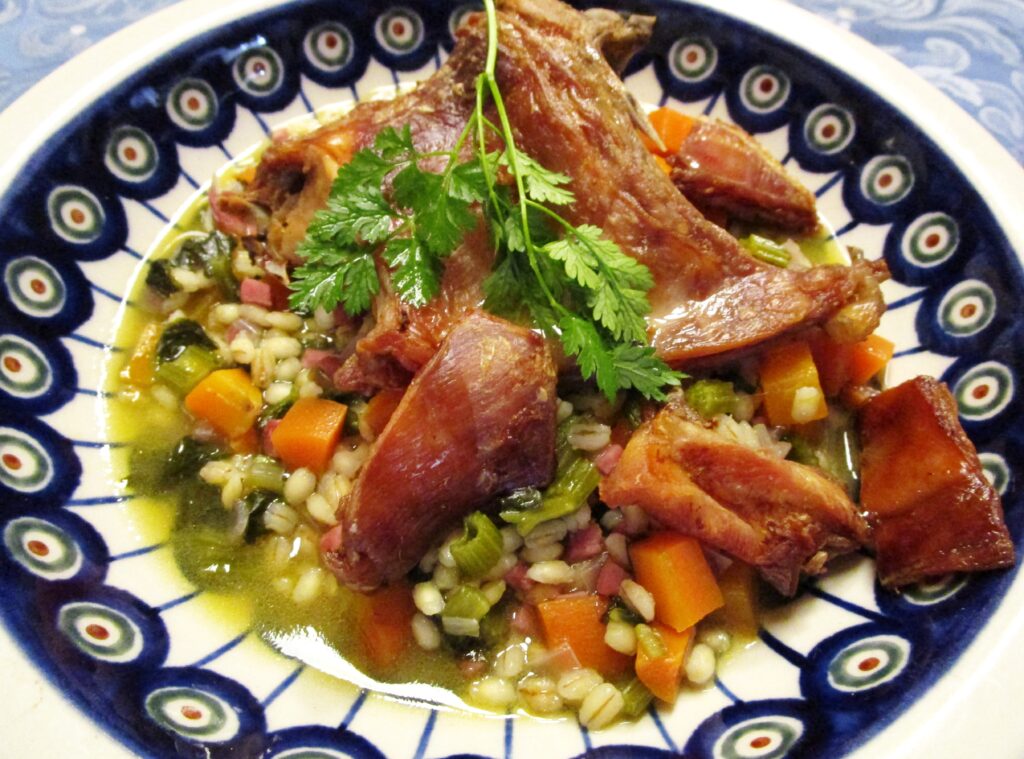
A Partridge in a Pear Tree — No Wait, Make That Rose Water
Set the dials on your time machine to 14th-century France. I’m launching this Christmas season today, on Christmas Eve, with a partridge recipe from the Le Ménagier de Paris, a 1393 French guidebook on how a woman should run her household. The bishop had eight partridges on his Christmas menu, and they were probably similar to this contemporary recipe. It calls for partridge marinated in rose water, orange juice, and wine.
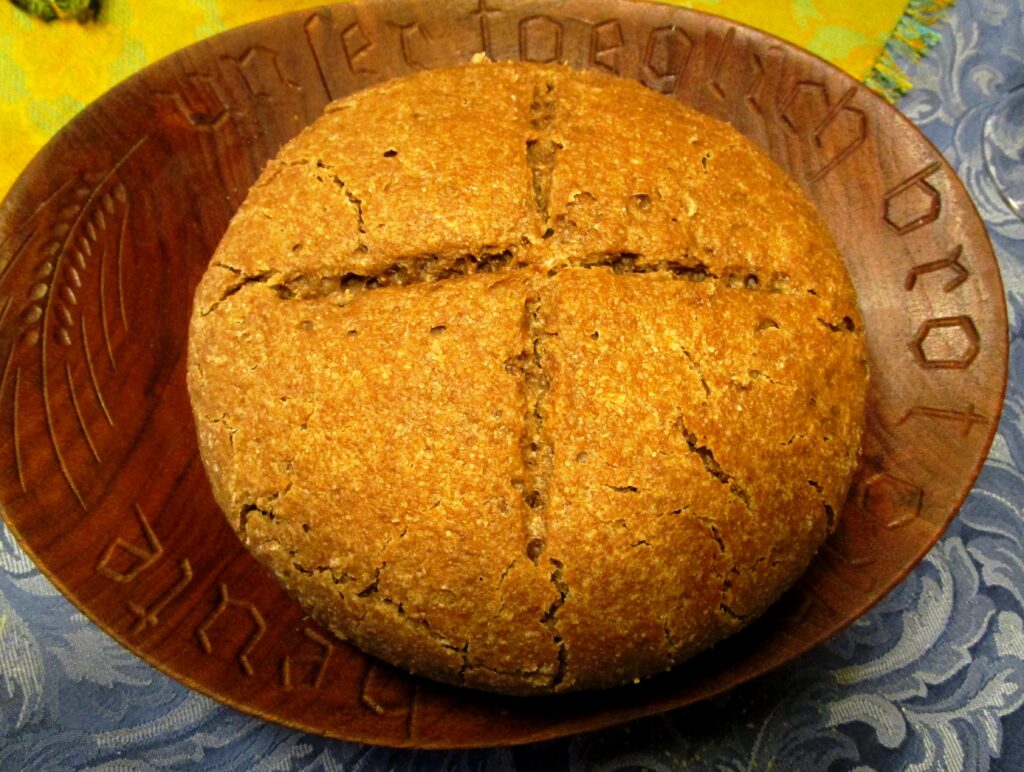
Although have wild partridge in Germany, but they are becoming rare. I can’t source it here. So I opted for one of the alternative meats Eatmedieval suggested: hare. I coupled this dish with homemade, crusty sourdough rye bread and clary, a medieval version of mulled wine or Glühwein.
The whole family thought it tasted great — compliments came from all around the table.
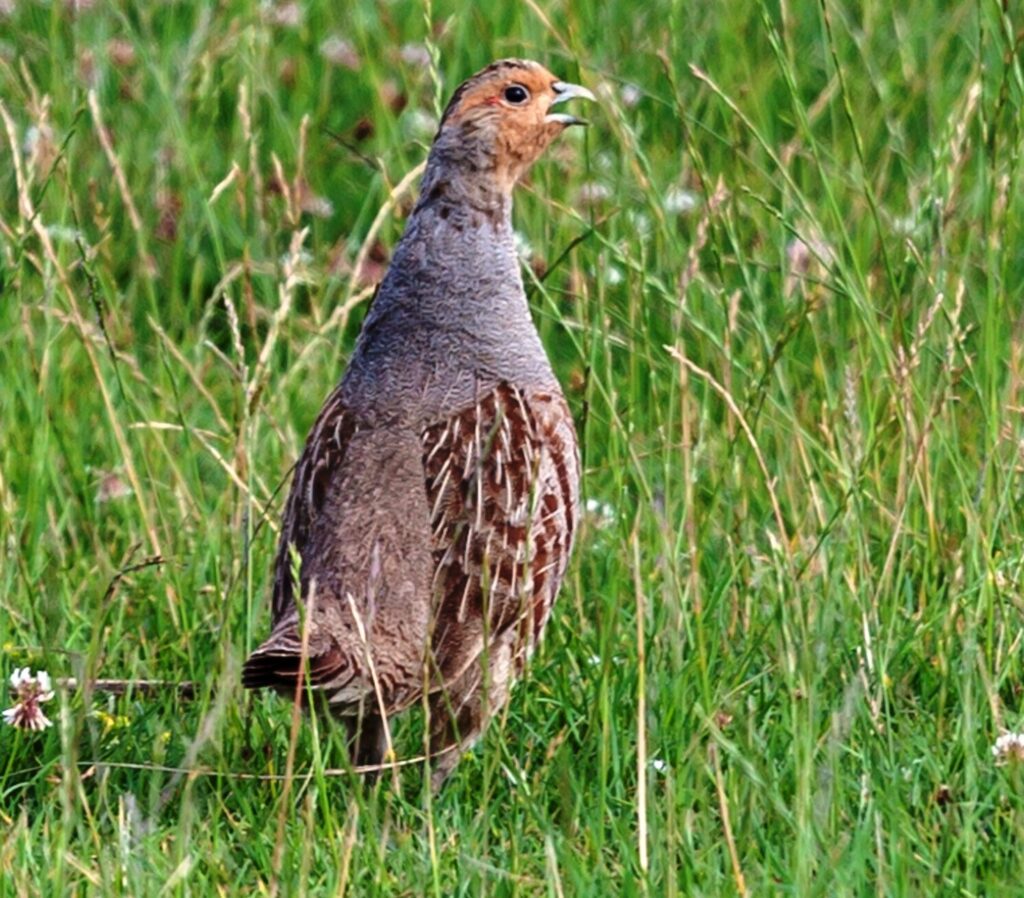
Only the Bare Bones of Recipes
One of the first things we learned in the course is that medieval recipes are nothing like modern ones. Often, they’re hardly more than a list of ingredients. The medieval cookbook author assumed the reader had the requisite knowledge and experience to fill in the gaps. Enter the cooks of Blackfriars restaurant – they took scraps from the archives and transformed the medieval ingredients lists into restaurant-worthy dishes. Blackfriars created instructional videos for the creation of each dish. I’m sorry I can’t share those recipes with you – they are proprietary inventions – but if you are interested, please visit Eatmedieval. It’s planning to offer more classes.
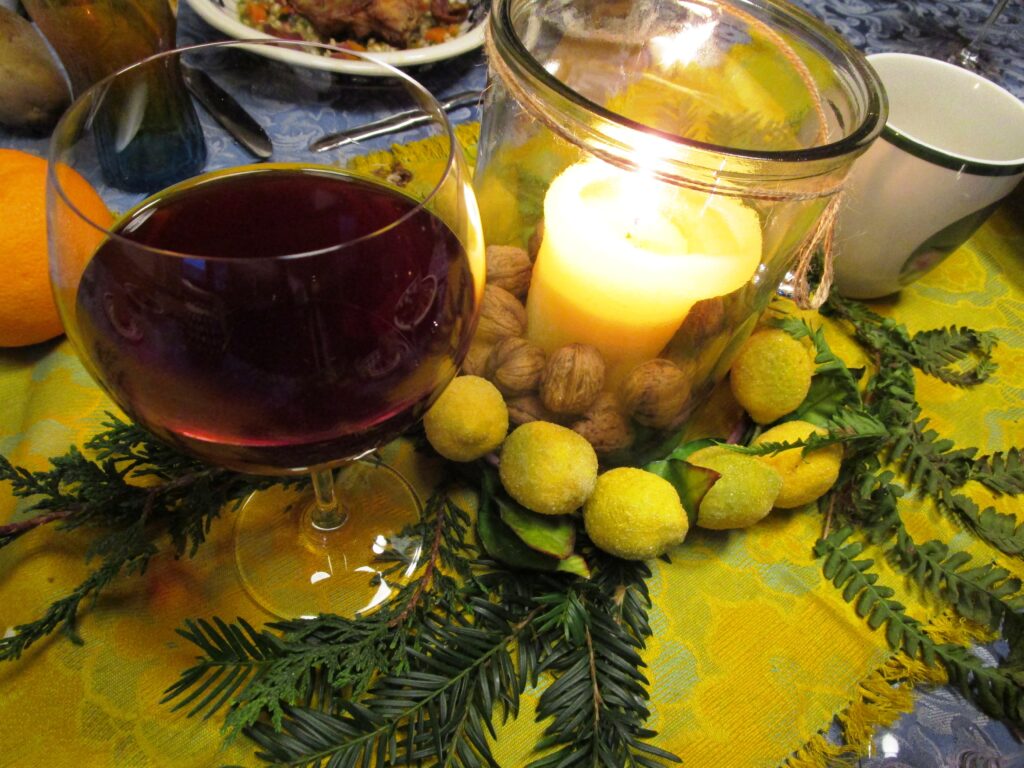
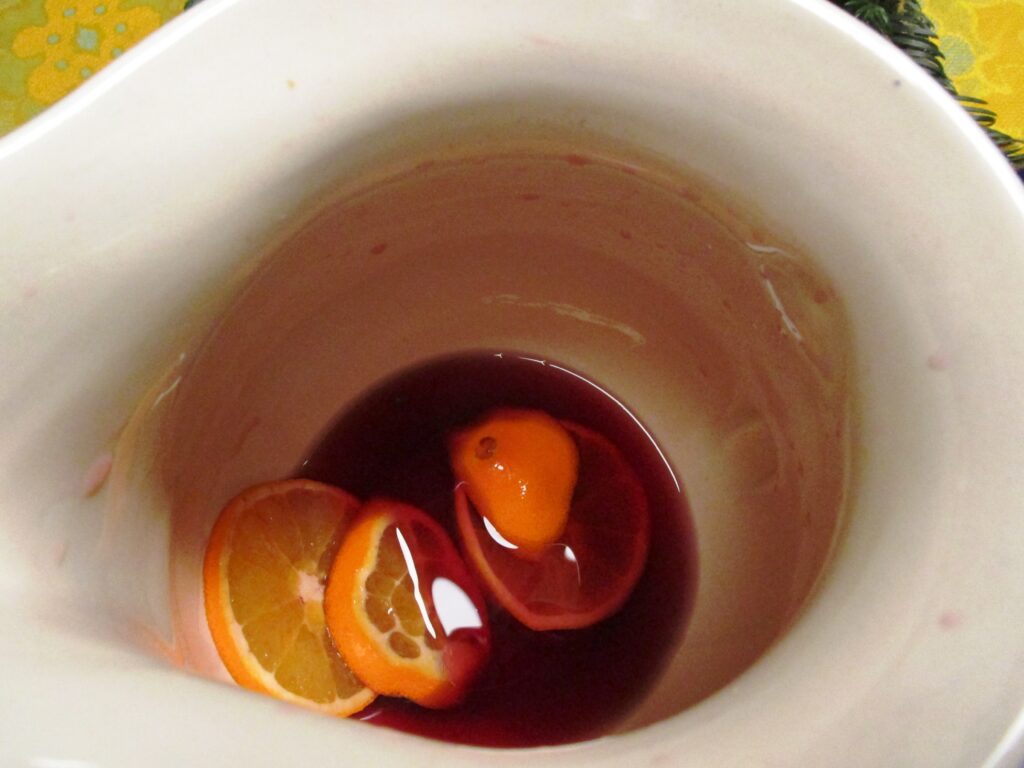
When does Christmas start – on December 24 or 25?
Now let’s set the location dials to Germany.
When does Christmas start? Germans say December 24. In the evening, they set up the tree and exchange presents. Americans say December 25. A Facebook group for Americans living in Germany contains posts about the conflicts in intercultural marriages – one spouse fighting for the 24th and one for the 25th.
One of the online history lectures included in the course supports the German tradition. The liturgical day in the monasteries began with evensong, or vespers, of day before. That’s why, says Dr. Sigbjørn Sønnesyn of Durham University, some parts of Christianity, like Germany, start celebrating Christmas on Christmas Eve. “Liturgically, that was always the start of the feast of the Nativity.” The bishop, however, would have hosted his big feast after the day Mass of Christmas Day.
Here in Germany, I do as the Germans do. The partridge recipe makes for a small meal to kick off Christmas, but I’m saving a huge item for tomorrow. I’ll prepare a boar’s head and blog about that, too.
Weingut Dautel
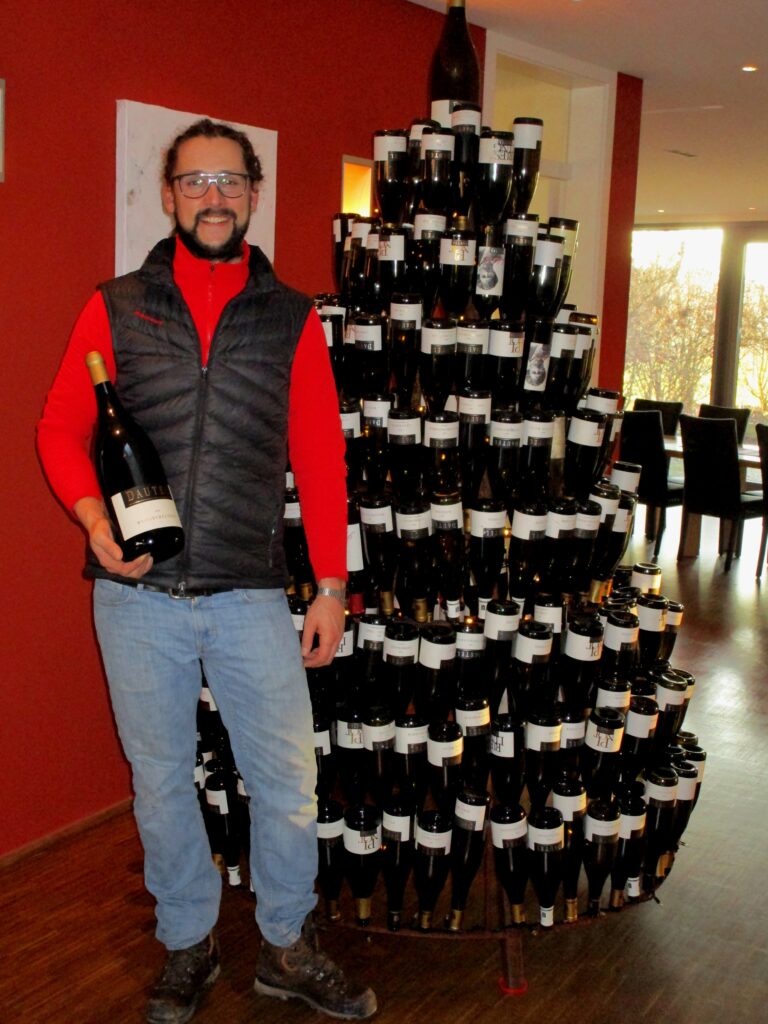
You can’t prepare a good meal without good ingredients! I’ll also be highlighting some of my sources.
I’m lucky to live within walking distance of a world-class vintner – one that even exports to the USA and was featured in Fortune magazine. The Dautel family has been growing grapes since 1510 and that kind of experience dances on the taste buds. I used the Dautel’s Trollinger for the clary.
Now in its 21st generation, winery Weingut Dautel has Christian Dautel at the helm. Following a degree in viticulture in 2005, he completed a series of international internships that the German wine magazine Fine describes as “a string of pearls.” He interned in wineries in Australia, Africa, Oregon, Austria, and France before taking over the winery from his father.
To the pearls the family can add a chain of gold medallions for all its awards. In 2019, Weingut Dautel received five stars from Eichelmann, 3.5 from Vinum, and 4 points from Gault Millau (the highest rating for a winery). The VDP (Verband deutscher Prädikatsweingüter), an organization of Germany’s top wineries, has designated a number of Dautel’s wines as Große Lage or grand cru (the highest quality wine).
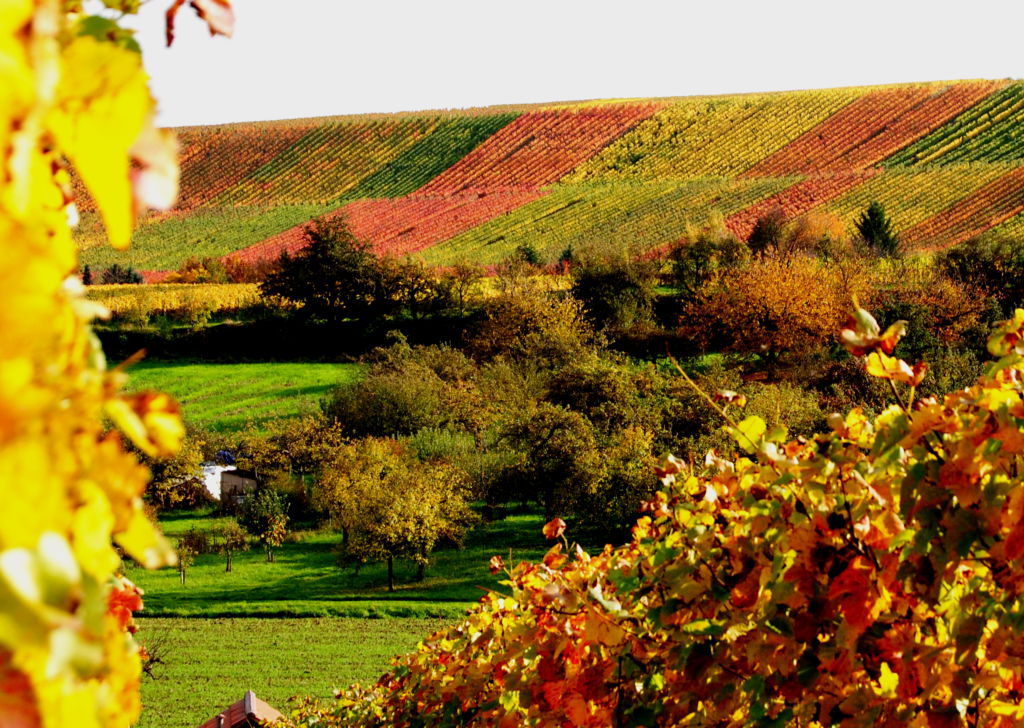
Frohe Weihnachten!
Have you ever eaten medieval food? What was it?

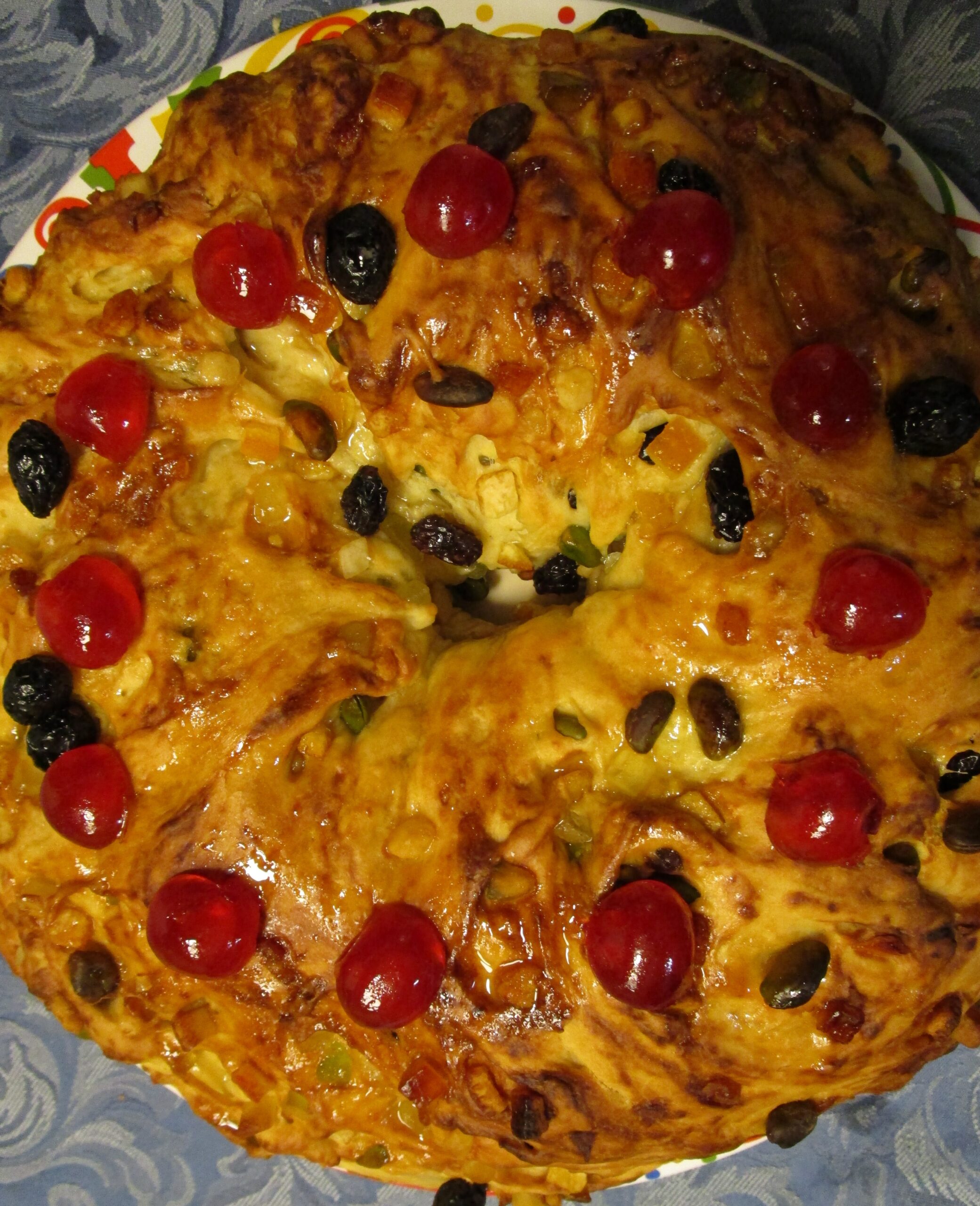
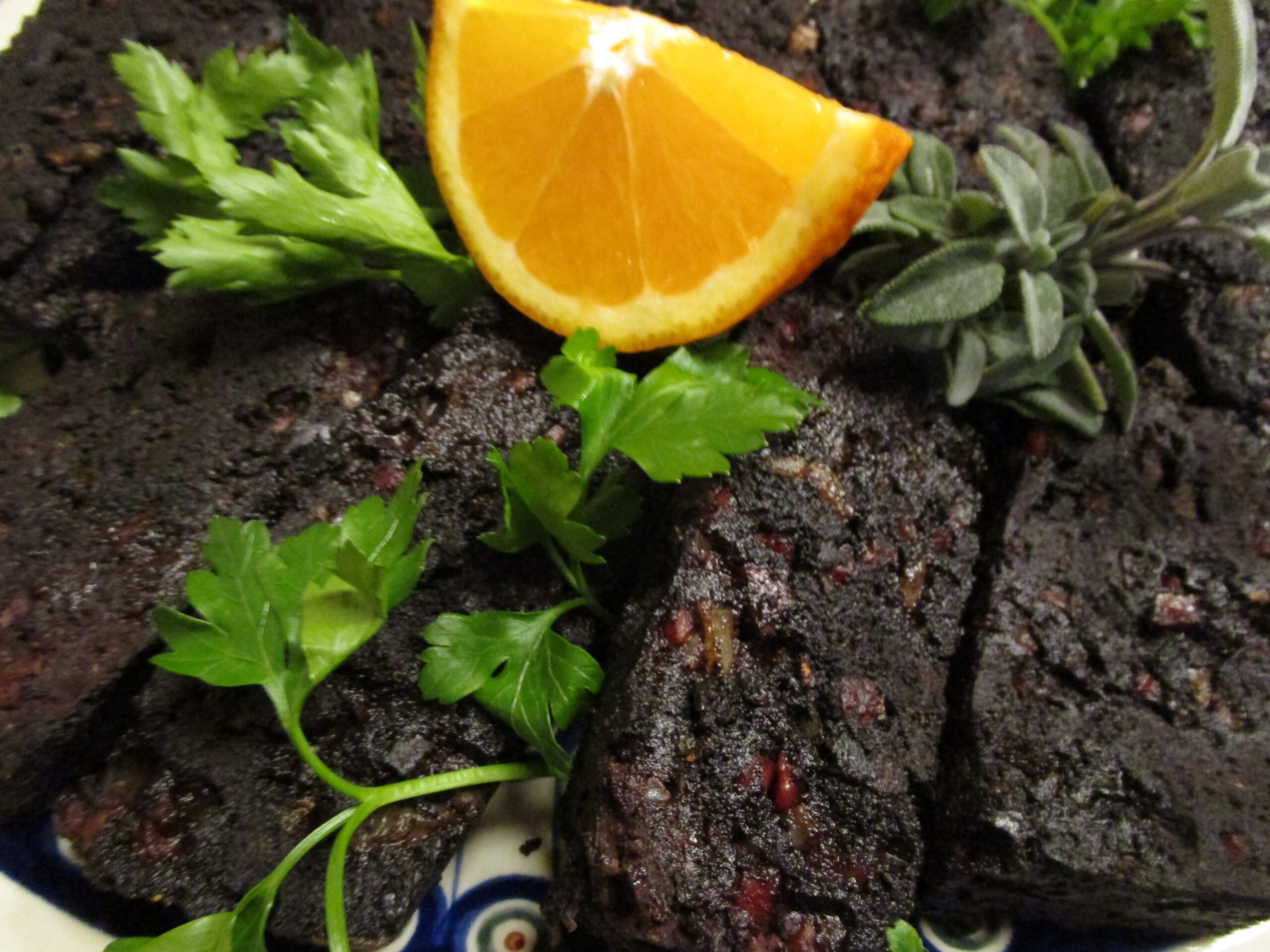

I hope the Anne Marie Ackermann and I are related. My mother her maiden name was Ackerman
If so, it would be on my husband’s side, since Ackermann is his family name. But it is a common name in Germany.
This is such a fascinating and inspiring endeavor, to use time isolated, in a positive and uplifting way. Your family is very lucky Ann Marie. I envy their meals and jolly company.
Thank you, Ingrid — your comment made my day. That is exactly my philosophy — to use my time during a lockdown to create a Christmas season my family will always remember.